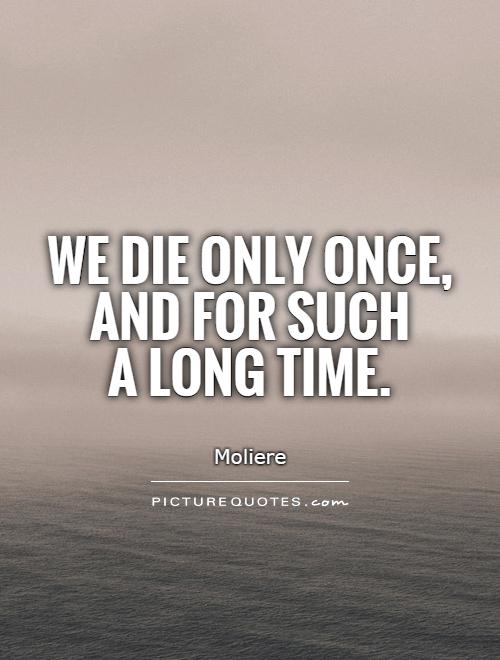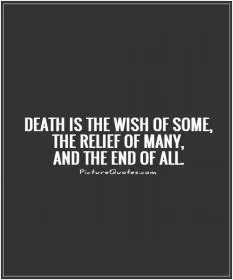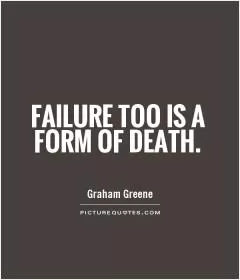We die only once, and for such a long time

We die only once, and for such a long time
The quote "We die only once, and for such a long time" is attributed to the famous French playwright Molière, whose real name was Jean-Baptiste Poquelin. Molière was known for his wit, humor, and keen observations of human nature, and this particular quote reflects his deep understanding of the human condition.In the context of Molière's words, "We die only once, and for such a long time" can be interpreted in a number of ways. On one level, it speaks to the finality of death and the unknown that lies beyond. Death is a universal experience that all humans must face, and it is a moment that marks the end of our physical existence. The idea that we only die once emphasizes the gravity of this event and the permanence of its consequences. It is a reminder that death is not something to be taken lightly, but rather something to be approached with reverence and respect.
At the same time, the phrase "for such a long time" suggests the eternity that follows death. While our physical bodies may cease to exist, our souls or spirits may live on in some form. This idea of an afterlife or some kind of existence beyond death is a common theme in many religious and philosophical traditions. Molière's words invite us to contemplate the mystery of what comes after death and to consider the implications of our actions in this life on our eternal fate.












 Friendship Quotes
Friendship Quotes Love Quotes
Love Quotes Life Quotes
Life Quotes Funny Quotes
Funny Quotes Motivational Quotes
Motivational Quotes Inspirational Quotes
Inspirational Quotes